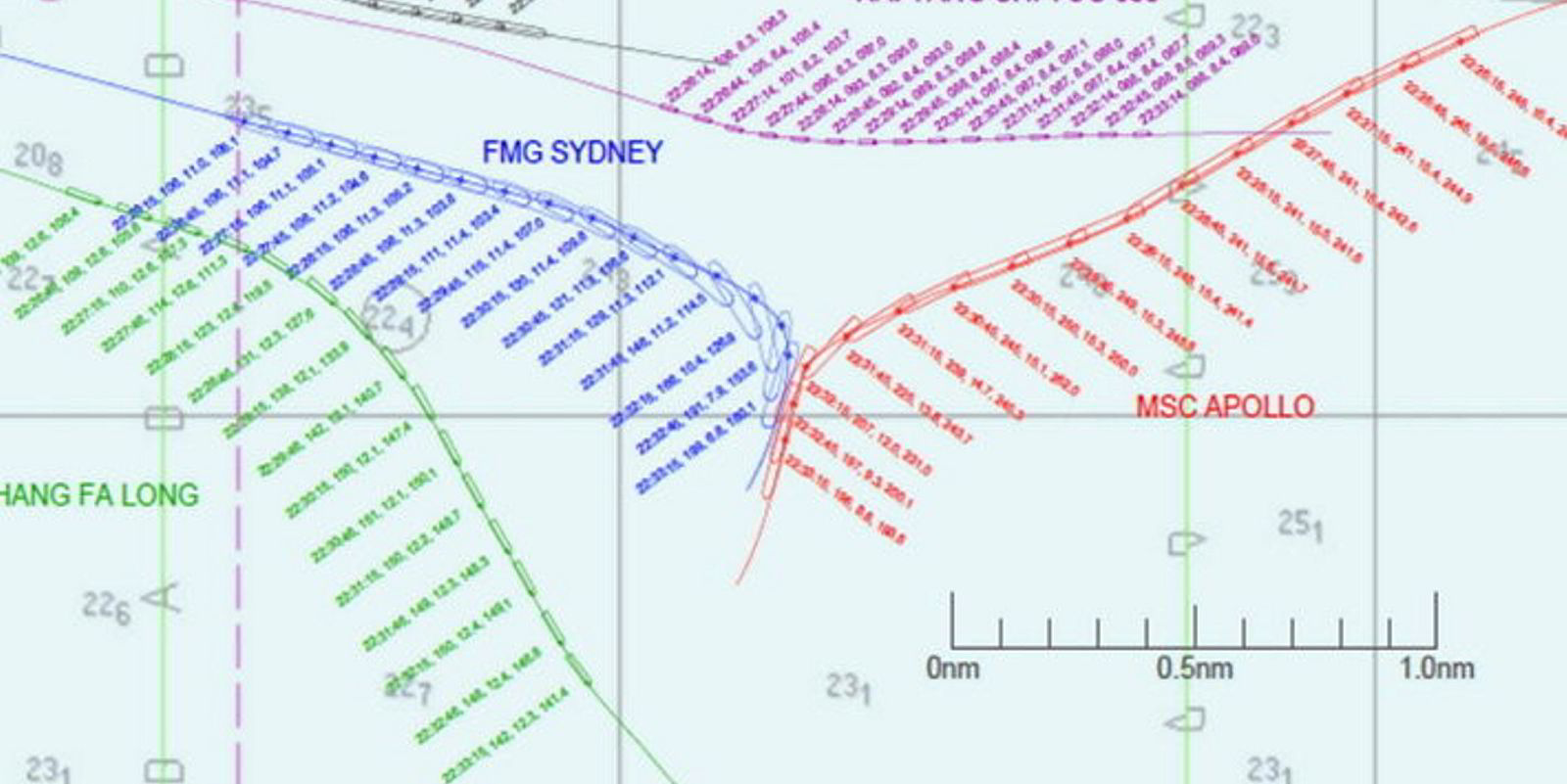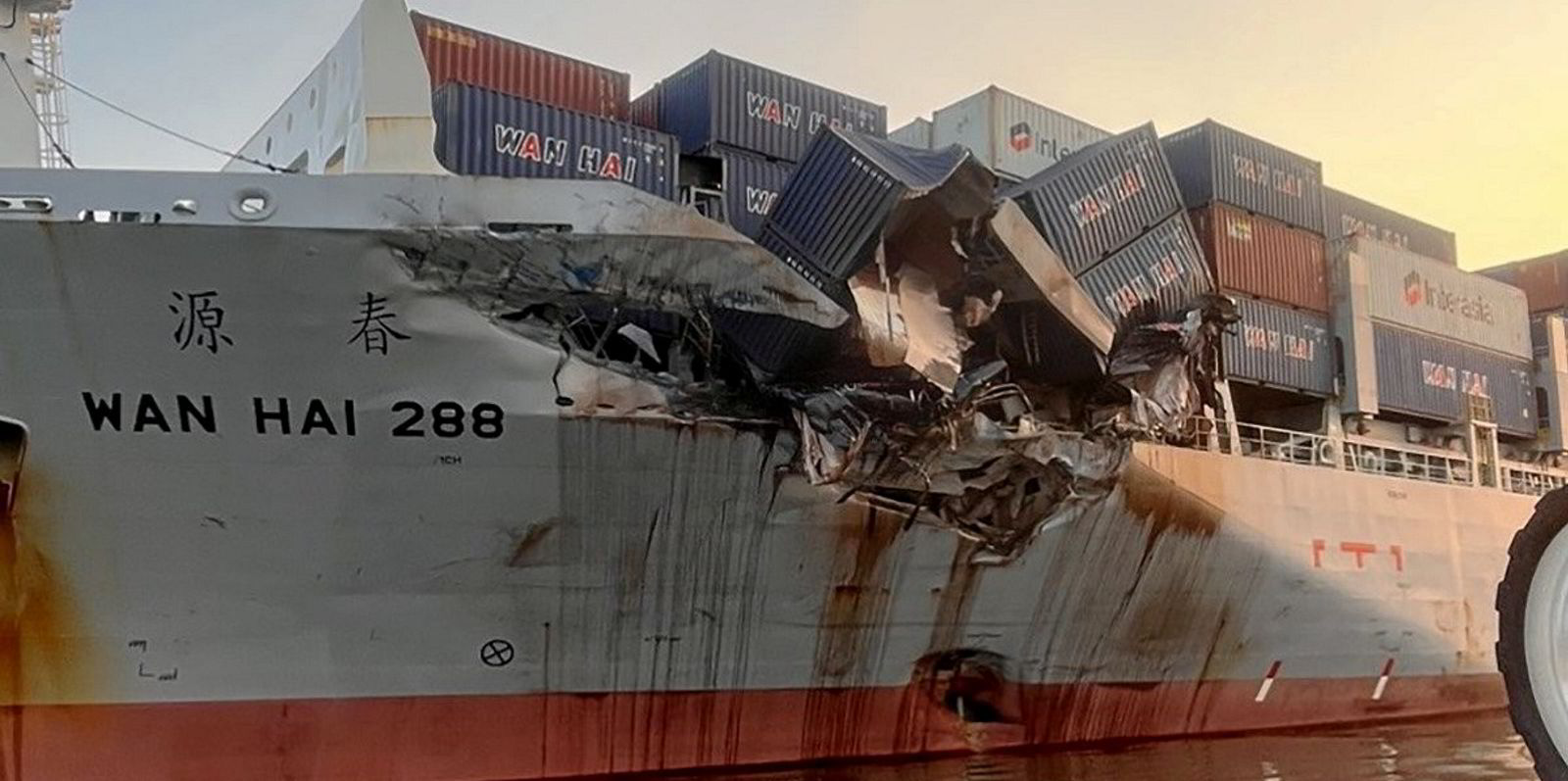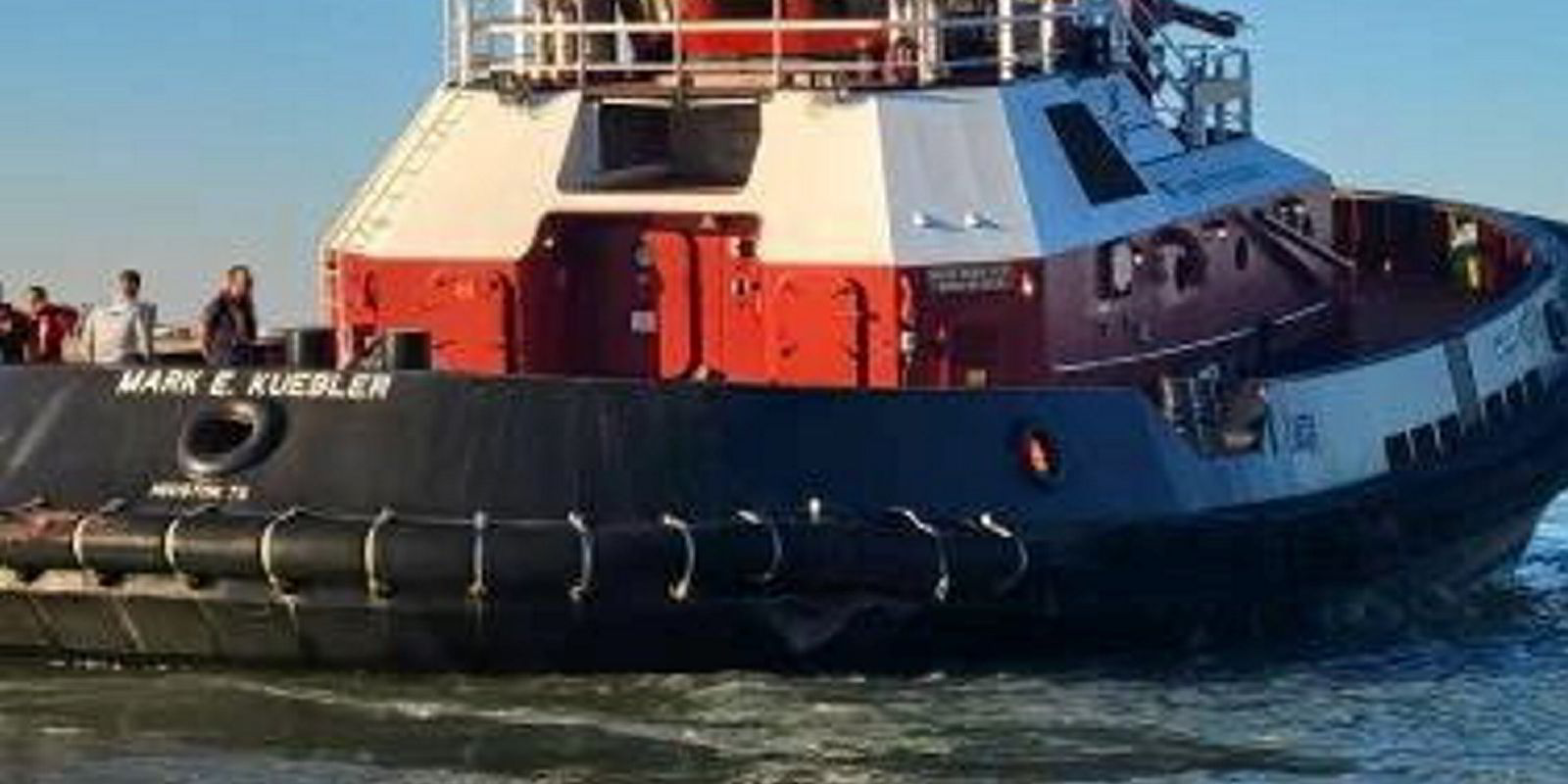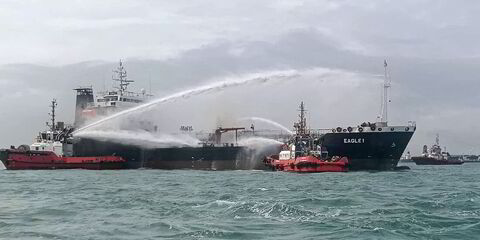A Cypriot container ship has been found fully responsible for a crash off China with a Fortescue Metals Group (FMG) bulker.
The Admiralty Court in London said the 6,492-teu panamax MSC Apollo (built 2002) carried out an incorrect turn so surprising that the master of the 261,100-dwt ore carrier FMG Sydney (built 2017) swore over the VHF radio.
The incident occurred on 29 August 2020 in the approach to Tianjin, China, as both vessels were in ballast.
Both suffered damage and exchanged security in the combined amount of $13.5m.
The bulker was leaving the port and the MSC Apollo was approaching the terminal at the time.
The court heard that the vessels were at risk of collision 12 minutes before the crash occurred.
The FMG Sydney was on the starboard side of the boxship, which is listed as owned by Apollonia Sea Co of Cyprus, linked by Clarksons to Cyprus Sea Lines.
As a result, Collision Regulations required that the MSC Apollo took early and substantial action.
But it failed to do this and instead made several turns to port and attempted to cross the bulker's bow.
Judge Sir Nigel Teare ruled that the captain of the container ship had ignored what the radar said and his obligations under the Collision Regulations, as well as inappropriately using the VHF system to try to agree on a starboard-to-starboard crossing in conflict with the crossing rule.
Stick to the rules
He said: “It is not surprising that in such circumstances the master [of the FMG Sydney] said ‘what the f***?’ and ordered hard starboard helm. Such action would move Sydney further away from Apollo, which was to the port of Sydney...
“This case illustrates the importance of vessels complying with the crossing rule, the purpose of which is to avoid the development of a close quarters situation.
“Had Apollo been mindful of its obligations as the give-way vessel, the close quarters situation and resulting collision … would never have occurred. Navigation will be safer if mariners observe and heed the ‘bright light’ of the crossing rule.”
The court rejected criticisms of the FMG Sydney’s lookout, speed and last-minute manoeuvre, and concluded that the MSC Apollo was solely responsible for the damage caused by the collision.
Defence lawyers had argued that a vessel that sees both sidelights of another ship has to take action as required by the head-on rule, and the crossing rule does not apply.
The MSC Apollo is operated by liner giant MSC Mediterranean Shipping Company.





